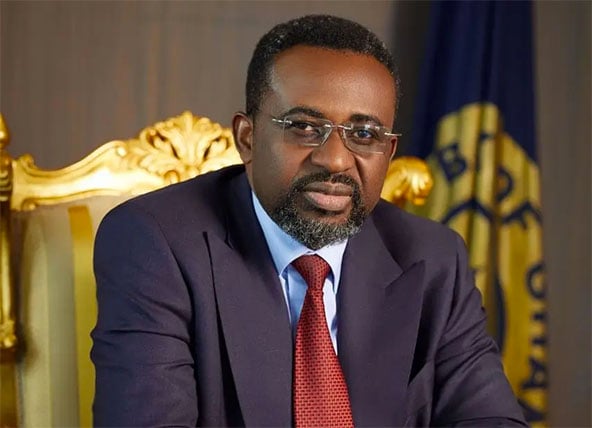The Bank of Ghana is poised to introduce regulatory oversight of cryptocurrency platforms and digital asset providers by the end of September 2025. This significant development stems from the recent enactment of the Virtual Asset Providers Act, empowering the central bank to supervise and license entities operating within the virtual asset space. Governor Dr. Johnson Asiama emphasized the inevitability of this technology, underlining the urgency to establish a regulatory framework to manage its growth and potential risks within the Ghanaian financial ecosystem. This proactive approach will not only provide a structured environment for virtual asset operations but also protect consumers and investors from the inherent volatilities of this emerging market.
The announcement was made during the African Leaders and Partners Forum, held in conjunction with the IMF/World Bank Spring Meetings in Washington, DC. This forum provided a platform for leaders and experts across various sectors, including finance, trade, and agriculture, to discuss strategies for bolstering economic cooperation between Africa and the United States. Dr. Asiama’s address highlighted the crucial role of macroeconomic stability and strategic autonomy in Africa’s efforts to solidify its standing within the global economy. He positioned the regulation of virtual assets as a crucial element of this broader strategy, recognizing the transformative potential of this technology and the need for a balanced approach that fosters innovation while mitigating associated risks.
This regulatory initiative forms a cornerstone of the Bank of Ghana’s broader proposal to reshape US-Africa engagement, focusing on enhancing macroeconomic credibility. Dr. Asiama outlined a multi-pronged strategy encompassing inflation control, reserve accumulation, and fiscal discipline. These measures aim to create a stable and predictable economic environment conducive to both domestic and foreign investment, and ultimately strengthen Ghana’s economic resilience. Stabilizing inflation protects the purchasing power of citizens and provides a foundation for sustainable economic growth, while building reserves enhances the country’s ability to weather external shocks and maintain financial stability.
The Governor emphasized the broader trend across Africa, where central banks are implementing sweeping reforms to enhance transparency, bolster institutional independence, and build greater credibility. This synchronized effort reflects a shared commitment to strengthening financial systems and fostering investor confidence across the continent. By promoting transparency and accountability, these reforms are designed to reduce corruption and instill greater trust in the financial sector. Reinforcing institutional independence is vital for ensuring that central banks can operate free from political interference, allowing them to make objective decisions based on sound economic principles.
These reforms are inextricably linked to the overarching goal of attracting sustainable investment and safeguarding economic stability. A robust and transparent regulatory environment, coupled with prudent macroeconomic management, sends a powerful signal to international investors, signaling a commitment to stability and predictable economic performance. Attracting sustainable investment is critical for financing infrastructure development, creating jobs, and driving economic diversification. These investments, in turn, contribute to enhanced economic resilience and long-term prosperity.
The Bank of Ghana’s proactive approach to regulating the virtual asset space is thus a key component of a broader strategy for strengthening the Ghanaian economy and enhancing its integration into the global financial system. It reflects a forward-thinking perspective that embraces innovation while prioritizing stability and investor protection. By establishing a clear regulatory framework, the central bank aims to harness the potential of digital assets while mitigating the associated risks, ultimately contributing to sustainable economic growth and development. This move positions Ghana as a leader in the African fintech landscape, demonstrating a commitment to embracing new technologies while ensuring a secure and regulated environment for their operation.


